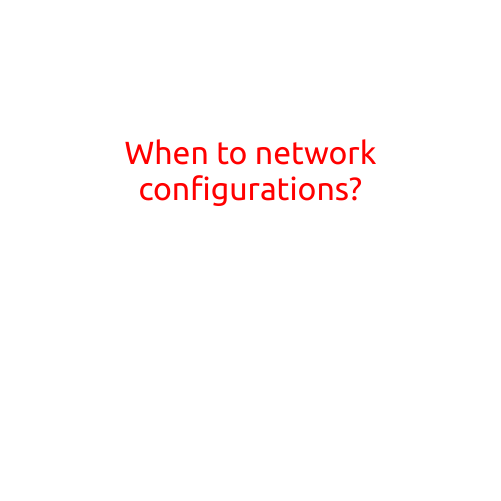
When to Follow Coding Practices: Understanding the Importance of Best Practices in Software Development
As a programmer, you’re likely familiar with the importance of coding practices. These guidelines and standards help ensure the quality, maintainability, and scalability of your code. However, with the ever-changing landscape of technology and rapidly increasing pressure to deliver projects quickly, it’s natural to wonder when to follow these practices.
In this article, we’ll explore the significance of coding practices, common scenarios where you should prioritize them, and techniques to effectively integrate them into your workflow.
Why Coding Practices Matter
Coding practices are essential because they:
- Improve Code Quality: By following best practices, you can reduce errors, improve readability, and make your code more maintainable.
- Enhance Collaboration: Consistent coding practices help team members understand each other’s code more easily, reducing the likelihood of conflicts and misunderstandings.
- Boost Efficiency: By automating repetitive tasks and simplifying code, you can increase your productivity and focus on higher-level tasks.
- Ensure Security: Coding practices can help prevent common security vulnerabilities and protect your application from potential threats.
When to Follow Coding Practices
While it’s essential to follow coding practices consistently, there are specific scenarios where you should prioritize them:
- When Working on a Large-Scale Project: For complex projects, following coding practices becomes even more crucial to ensure maintainability and scalability.
- When Collaborating with a Team: When working with multiple developers, it’s essential to establish a common set of coding practices to avoid conflicts and ensure consistency.
- When Working Under Tight Deadlines: In situations where time is of the essence, following coding practices can actually help you deliver the project faster by reducing errors and improving efficiency.
- When Writing Code for Critical Systems: For applications that affect millions of users or have significant financial implications, it’s essential to follow coding practices to ensure reliability, security, and maintainability.
Techniques to Integrate Coding Practices into Your Workflow
To make coding practices an integral part of your development process, try the following techniques:
- Code Reviews: Regularly review each other’s code to catch errors, improve readability, and ensure consistency.
- Automated Testing: Set up automated testing to catch errors before they reach production.
- Code Linters: Use code linters to enforce coding standards and catch errors before they’re committed to the codebase.
- Pair Programming: Pair up with a colleague to review each other’s code and ensure consistency.
- Code Refactoring: Regularly refactor your code to improve maintainability, scalability, and readability.
Conclusion
In today’s fast-paced software development landscape, it’s easy to overlook the importance of coding practices. However, understanding when to follow these guidelines can ensure the quality, reliability, and maintainability of your code. By prioritizing coding practices in specific scenarios and integrating them into your workflow, you can improve your productivity, collaboration, and overall development experience.
Remember, coding practices are not a one-time task, but an ongoing process that requires effort and dedication. By making them an integral part of your development process, you’ll be better equipped to deliver high-quality software that meets the needs of your users and stakeholders.





